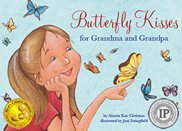This “Wisdom” round’s question isn’t exactly a question. I asked the team to tell us about their travels down the long and winding road to publication. One of the reasons I wanted us to cover this topic is because every once in a while, you’ll see blog posts from an author who tells you the very first manuscript they sent out was acquired overnight—as though it’s the easiest thing one can do. That is not the norm nor is it reality. I also wanted emerging writers as well as those who have been at it for a long, long time to see similarities and differences in each writer’s experience. My wish for you and all our readers this round is that you might be inspired or pick up just one bit of wisdom that will help you in your journey. But also, that you adjust your expectations, so that if you find yourself on a long and winding road, you’re not disappointed or discouraged. And if you are one of the lucky ones who gets a contract overnight, you will be surprised and appreciate the moment even more than you might have.
Because it has been a long road for the “Wisdom” authors, we all had a lot to say. So, this topic will be shared in three parts over the next three weeks.
I’ve seen some similarities in answers, but everyone’s path has been a little different. I’m going to start with my own answer because it brings up a topic that didn’t pop up in any of the other answers.
Before we get started, I’d like to share some good news and congratulate Rob Sanders has a book birthday coming on May 4 with TWO GROOMS ON A CAKE: THE STORY OF AMERICA’S FIRST GAY WEDDING. HAPPY BIRTHDAY! I’d like to also congratulate the illustrators of my picture books for winning the Story Monsters Approved Award. Polina Gortman illustrated THE WEED THAT WOKE CHRISTMAS: The Mostly True Tale of the Toledo Christmas Weed. And Milanka Reardon illustrated AN OLD MAN AND HIS PENGUIN: How Dindim Made João Pereira de Souza an Honorary Penguin.

WHEN YOU SAY “YES” TO ONE THING, YOU ARE SAYING “NO” TO ANOTHER
by Alayne Kay Christian
I’m guessing, as with most team members, it would take an entire book to share my long journey. I’ll do my best to keep this short. My first picture book BUTTERFLY KISSES FOR GRANDMA AND GRANDPA was released way back in 2009. It won some awards and got great reviews, so I thought for sure, this kid-lit writing thing was going to be a breeze. I was wrong. I spent the next several years taking children’s book writing courses, attending SCBWI conferences and workshops, and getting involved in the online writing community. In 2013, I was on top of the world when I signed with an agent (my choice out of three agent offers—wasn’t I something?). I knew for sure that I was going to conquer the kid lit world now! Well, once again, I was wrong. In 2015, I parted ways with the agent. That set my confidence back for a couple of years. I did very little submitting, but I did continued to write, study children’s book writing, and work to grow my online presence. I also started a professional critique service and wrote an independent-study picture book writing course, Art of Arc. I also started working as a critique ninja for Julie Hedlund’s 12 X 12, which I did for three years. In 2016 I signed with a small publisher and in 2017, my chapter book series Sienna, the Cowgirl Fairy was launched. I continued to study children’s book writing and submit. Also in 2017, I helped my husband relaunch Blue Whale Press where I was the acquisitions editor and creative director. In addition to that, I spent the year going back and forth with an agent who I thought was going to sign me for sure. Once again, I was wrong. We even had what I thought was “the call.” But it turned out to be a “let you down easy” call. She loved one of my stories, but didn’t fully connect with the others I offered. That set me back for a while. But I had so much going on with Blue Whale Press and my other writing related work that I didn’t have time to fall into negative thinking. In 2019, I started offering affordable children’s writing webinars. But even with all of the above, I also continued to study, write, and submit. 2020 was an exciting year for me when finally; my next two picture books were published. I am so proud of AN OLD MAN AND HIS PENGUIN and THE WEED THAT WOKE CHRISTMAS and my latest Sienna book COWBOY TROUBLE. I’m so excited that THE WEED THAT WOKE CHRISTMAS recently won the Story Monsters Approved award for books that make a difference. And THE OLD MAN AND HIS PENGUIN won an award in the nonfiction picture book category.
It took thirteen years of hard work, but more than anything, perseverance, to get (soon to be) four published picture books and two chapter books into the world. I tried to include what I consider to be major parts of my journey to demonstrate that it’s not necessarily just about writing and submitting. It’s about learning, growing, and finding ways to apply your knowledge and creative energy when it sometimes feels as though all has failed. And like in the stories that we write, finding our way through our darkest moments will lead us to a satisfying ending.
I don’t regret my path for a minute because I love all the gifts I have given writers and illustrators over the years with my critiques, courses, work with Blue Whale Press and so on. I’ve found that for me, relaxing into where life takes me usually leads me to where I need to be. But a word of warning . . . when you say “yes” to one thing, you are saying “no” to another. In my case, I said a lot of “no” to writing and submitting by saying “yes” to helping others. Where might I have been had I been more focused? That is not a question of regret. It is a question that I pose to you as writers. Following is a little worksheet to help you see your “yes” and “no” choices more clearly. I hope some of you find it helpful. The worksheet was initially part of a much longer post I wrote on the topic. Click here to read it.
SHEER LUCK? SOMETIMES. SHEER GRIT? MOST OF THE TIME.
by Kirsti Call
It happened backwards for me. I wrote my first couple of stories, joined a critique group, submitted THE RAINDROP WHO COULDN’T FALL about three months into my writing journey. Character Publishing gave me an offer almost immediately, and my first book came out in 2013. Then for 6 years I wrote and revised and submitted and submitted and submitted again. I FINALLY got my first agent who subsequently sold 4 books for me. Sheer luck led to my first book. Sheer grit led to others.
ALL THE TIME I PUT INTO LIVING LIFE, AND WRITING STORIES, LED ME TO STRENGTHEN MY CRAFT AND FIND MY WRITING VOICE
by Melissa Stoller
My journey to publication was indeed a “long and winding road.” I had started writing when my oldest daughter was a baby and I loved reading picture books to her and making up bedtime stories. Before that, I practiced as an attorney, taught legal research and writing to law students, and worked as a career counselor at a law school. When I received many rejections to my initial book queries, I turned my attention to writing parenting articles and doing freelance editing. But eventually, I returned to my dream of writing for children (and by that point, I had three children and lots more time doing field research into the KidLit world). In fact, I had joined the SCBWI in 1997 (!) and my first book, THE ENCHANTED SNOW GLOBE: RETURN TO CONEY ISLAND, was published in 2017! I am forever grateful to Callie Metler and Clear Fork Publishing for helping me turn my writing dreams into reality. My advice to aspiring writers is to keep pursuing your goals. Your writing journey may detour down some curving roads, like mine did, and your path to publication may not be straight. But all the time I put into living life, and writing stories, led me to strengthen my craft and find my writing voice. So, buckle up, get on whatever type of road best fits your career, and say ready, set, GO!
KEEP YOUR CHIN UP AND YOUR FINGERS ON THE KEYBOARD!
by Rob Sanders
My journey to publishing started back in college. I paid my way through college and graduate school by writing religious educational materials. A few years later, I wound up working for the company for which I’d been writing, eventually becoming an editor and product designer there. But none of those materials were things kids would ever find in their public or school libraries or local bookstores. It wasn’t until I was 50 that I decided to pursue my dream of writing picture books. Two years later I made my first sale through a paid critique at SCBWI LA. A year later, I landed an agent. Selling my second book proved to be as difficult as selling the first and that pattern continues. Each of my manuscripts has to stand on its own merits and find its own home. I often remind myself of the advice my agent gave me when we first started working together: Keep your chin up and your fingers on the keyboard!
FIVE INGREDIENTS THAT ARE NECESSARY FOR SUCCESS IN ANY PROJECT
Vivian Kirkfield
Whenever I do presentations about the path to publication, I talk about how becoming a picture book author was a lot like making a pizza. Whether I’m speaking with six-year-old school kids or sixty-year-old aspiring authors, I share the 5 P’s…5 ingredients that are necessary for success in any project: PASSION, PREPARATION, PRACTICE, PATIENCE, and PERSISTENCE. It’s a process and it takes time. I started my writing journey at the end of 2011 – we signed my first book deal at the end of 2015 – and that book launched in 2019. I had sent out a few submissions to editors on my own, but I knew I wanted an agent because I knew I didn’t want to focus on where to send my manuscripts…I wanted to focus on writing them. However, the path is different for each one of us – and what is right for one person might not be right for another. What is needed, however, whether you have an agent or not, is positivity. Oh…there’s another P…I guess you can tell I’m a picture book writer with all of that alliteration.😅 I remain positive because I know that the rejections…and YES, I do get lots of rejections…are not personal. I try to remember that this is a business…and the publisher/editor must make a profit from the books they produce. Otherwise, they have to close their doors. And if they don’t choose my manuscript, it’s because they don’t think they will make money. I also try to keep in mind that sometimes, publishers are wrong. So, when I get a rejection, I remind myself that I am in good company with J.K Rowling and Louisa May Alcott and Stephen King and many others: https://wildmindcreative.com/bookmarketing/6-famous-authors-who-once-faced-rejection.
COMING IN THE NEXT TWO WEEKS PART 2 AND PART 3
Next week, Ellen Leventhal and Pippa Chorley talk about their journeys, which both include dealing with imposter syndrome. And Beth Anderson shares her thoughts on what it takes to be successful as an author. Finally on May 8th, we’ll wrap up our thoughts on the path to publication with Laura Gehl who talks about how time only serves to make you a better author. Dawn Babb Prochovnic looks at the importance of continuing the work in spite of obstacles. Michelle Nott talks about trends and also demonstrates that it pays to never give up on old stories. Rosie Pova talks about how persistence pays off. Marcie Flinchum Atkins talks about enjoying the rituals of writing and having friends who “get” the writer’s experience.
TO READ THE TEAM MEMBERS’ ANSWERS TO “MY MOST IMPORTANT LESSON LEARNED” click here for Part One and here for Part Two.





















